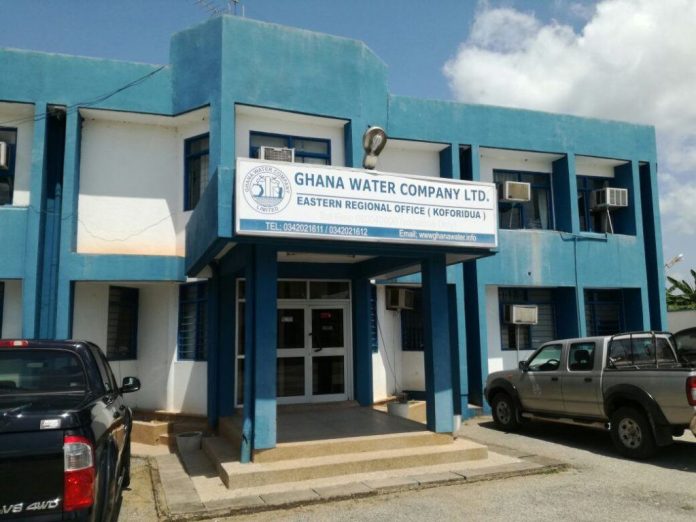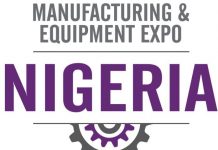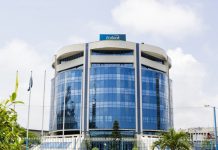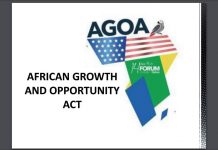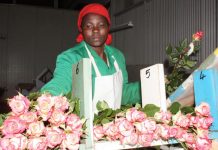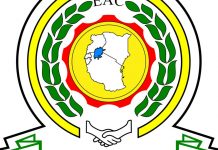Sanitation/Hygiene
Ghana loses about US$232 million annually in productivity because of poor sanitation and hygiene services, according to the World Bank’s Water and Sanitation Program. The statement was made at a media dialogue to analyze the country’s 2015 budgetary allocation to ministries in the water, sanitation and hygiene (WASH) sector. Describing the sector’s resource allocation in the 2015 national budget as “very low” and inadequate to meet investment needs, the Coalition of NGOs in Water and Sanitation (CONIWAS) called on the Ghanaian government to increase financial resources to facilitate delivery of improved water, hygiene and sanitation services to promote the wellbeing of Ghanaians. It cited a 2004 World Health Organization study showing that every dollar invested in WASH services would yield an economic return of between $3 and $34, depending on the region and choice of technology. It also urged the government to make a special financial allocation to meet improved water supply conditions in the country’s schools, while speeding up the implementation of the Urban Water Restructuring Implementation Committee’s recommendations, including improved governance and efficient management of the Ghana Water Company Ltd.
U.S. Business Partnerships
The Coca-Cola Co. said it would invest in Ghana under the company’s ten-year expansion program for Africa. The commitment followed a visit to Coca-Cola headquarters in Atlanta, Ga., by a Ghanaian business delegation that sought U.S. partnerships and investment in agriculture/agro-processing, manufacturing, transportation, franchising, supply chain management and logistics. Ghana Trade and Industry Minister Ekwow Spio-Garbrah Ph.D., who led the delegation, made a pitch for Coca-Cola funds to help revive key priority projects, such as the Komenda Sugar Factory, citing a draft National Sugar Policy and a draft Sugar Industry Bill to guarantee security against any commercial risk on investments in sugar production. The delegation met with local small to medium-size African-American companies that wish to do business in Ghana in health, education and urban redevelopment, and held talks with the United Parcel Services, the local U.S. Exim Bank office, and the U.S. Chamber of Commerce in Atlanta on opportunities in supply chain and logistics; water treatment and irrigation systems; greenhouse and agriculture; intermediate assembly plants; tractor and agricultural equipment supply; and franchising. Talks with the U.S. Department of Commerce were in keeping with Ghana’s plans to fully unlock its trade potential, including obtaining help in streamlining and harmonizing its Customs procedures with international best practices.
Bilateral Cooperation
Zambia and Tanzania agreed to build another oil pipeline to transport refined crude oil between the two countries, according to Zambian news reports. The two countries currently use the Tanzania Zambia Mafuta (TAZAMA) pipeline to transport crude oil from Tanzania to Indeni Oil Refinery in Zambia, described as “dilapidated” and in need of rehabilitation to stem leakages. Zambia’s Minister Mines, Energy and Water Development Christopher Yaluma said a feasibility study would be conducted on the new pipeline project and would include modalities such as cost structure and a project implementation time frame. He was quoted as saying that the envisioned pipeline will feed directly into selected fuel storage depots without going to Indeni for refining. The move is expected to contribute to sustainable fuel supply in Zambia following frequent breakdowns of the oil refinery. Zambia’s daily fuel consumption includes 1.5 million liters of diesel and 500,000 tons of gasoline.
Oil and Gas PPPs
Twenty officials from Tanzania’s Ministry of Energy and Minerals in February completed a six-week course on implementation of oil and gas policy at The Institute for Public-Private Partnerships (IP3) in Arlington, Va., The Washington Diplomat reports. Liberata Mulamula, Tanzania’s ambassador to the United States, said the IP3 training has come at an opportune time, giving Tanzanian officials the education they need to take part in corporate decisions once they’re back home. “We really can’t go any other way. PPPs are the way, especially in key areas of infrastructure. I am confident you gained the knowledge and skills to make an enormous impact,” she said. Tanzania’s offshore gas deposits in the Indian Ocean are estimated at more than 50 trillion cubic feet, a figure likely to double with more drilling. According to the IMF, once infrastructure is in place and production begins, these deposits could bring Tanzania annual revenues of $3 billion to $6 billion. However, that depends largely on the production-sharing agreements the country negotiates with big energy conglomerates like British Gas, Petrobras, Shell and Statoil, hence the importance of African energy officials knowing how to negotiate such deals successfully. Since its establishment in 1994, IP3 has trained more than 35,000 officials from 175 countries in the areas of finance, economics, law, policy, regulation and management. Trainees have taken courses in energy, transportation, water, telecommunications, environmental management and municipal services.
Manufacturing
French cosmetics giant L’Oréal signed an agreement with specialized distributor Compagnie Française de l’Afrique Occidentale (CFAO), to cover the production and distribution of cosmetics in Cote d’Ivoire. Under the agreement, CFAO will be the sole distributor of L’Oréal international consumer brands in the French-speaking West African country. A French-based subsidiary of Japan’s Toyota Tsusho Corp., CFAO operates in Africa and France’s former colonies. Its agreement with L’Oreal is in keeping with its strategy to facilitate the manufacturing and distribution of international brands and facilitate the consumption of world-class products in West Africa. L’Oréal, meanwhile, gains access to CFAO’s extensive distribution channels and knowledge of African countries and markets, as well as its production facility for cosmetics and packaging components. The agreement also will speed up L’Oréal’s expansion and development of its hair care and body-care brands into Francophone Africa’s fast-growing consumer markets.
Retail/Industrial Development
Ghana says it is putting in place the necessary framework and enabling environment to develop the concept of shopping malls. The goal is to expand retail market space and grow the country’s industrial base by adding impetus to the Made-In-Ghana campaign. The proliferation of shopping malls is nothing new in sub-Saharan Africa, where growing middle class and rising disposable incomes are driving consumer demand. Ghana is no exception, with the recent opening of the SIC Life Mall in Accra, named for the life insurance firm that financed its construction, following the regional trend. Hailing this as a sign of growing investor confidence in the economy, Ghanaian President John Dramani Mahama said the government stands ready to support local industrialists by promoting consumption of Made-in-Ghana goods.


